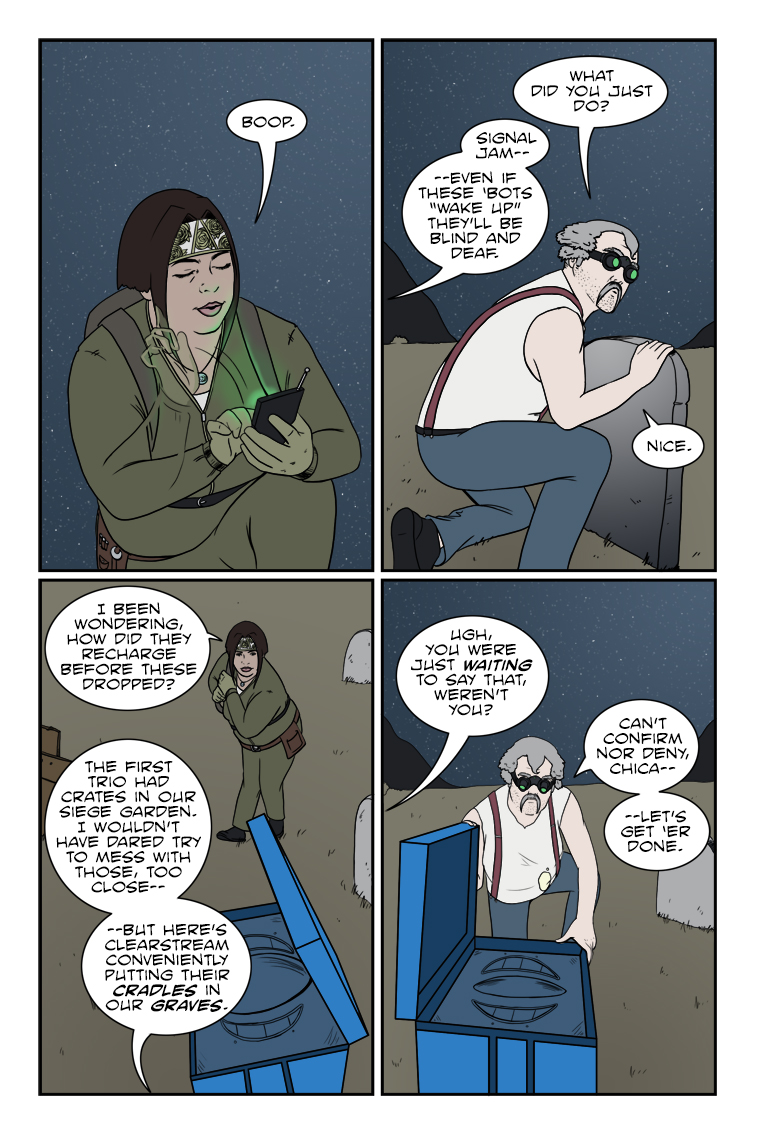Cart
Product categories
Support Us!
If you like what I do please support us on Ko-fi or Patreon.
Follow Us!
Join Our Newsletter!
Vote For Us!
Login
Polls
Events
-
Pasadena Comic Con
Dates: May 24
Location: Pasadena Convention Center, 300 E Green St, Pasadena, CA 91101, USA ( MAP)Details:We will be at the Pasadena Comic Con on January 26th. See some of you there for this one day event!
Purchase tickets online at here: https://www.tixr.com/groups/pcc/events/pasadenacomiccon-pasadena-comic-con-2025-115248
-
San Diego Comic Con: SP-N7
Dates: Jul 23 - 27
Location: San Diego Convention Center, 111 Harbor Dr, San Diego, CA 92101, USA ( MAP)Details:Clint & Dawn Wolf will be at San Diego Comic Con, as Lab Reject Studios. We will be at booth N7 in Small Press.









3 thoughts on “543 – Cradles And Graves”
Keith
Oh lordy, they really are a great couple…though, I suggest adopting.
Anonymous
Consequences be damned, because doing nothing might be worse.
Tommyguada
hi
Latest Comics
#25. EPISODE TWO
50 Apr 06, 2010
#24. 23 – Day In The Death (END OF EPISODE 1)
48 Mar 17, 2010
#23. 22 – Simple Math
45 Mar 10, 2010
#22. 21 – In The Blood
47 Mar 03, 2010
#21. 20 – Man Down
45 Feb 24, 2010
#20. 19 – Shots Fired
48 Feb 17, 2010
#19. 18 – Ugly Little Bugger
51 Feb 10, 2010
#18. 17 – Reduce, Reuse, Recycle
50 Feb 03, 2010
#17. 16 – A La Cart
49 Jan 27, 2010
#16. 15 – All Good
47 Jan 20, 2010
#15. 14 – Busted
45 Jan 13, 2010
#14. 13 – First Impressions
44 Jan 06, 2010
#13. 12 – Warning Signs
48 Dec 23, 2009
#12. 11 – Nuthin’ But Meat
51 Dec 09, 2009
#11. 10 – Ornery Critters
48 Dec 02, 2009
#10. 09 – Runt Of The Litter
43 Nov 25, 2009
#9. 08 – What A Drag
49 Nov 18, 2009
#8. 07 – Off He Goes
49 Nov 11, 2009
#7. 06 – Don’t Hurt Them Much
45 Nov 04, 2009
#6. 05 – He’s Got Fire
52 Oct 28, 2009
Latest Chapters
Episode 22
Episode 21
Episode 20
Episode 19
Episode 18
Episode 17
543 – Cradles And Graves
Chuck sez: "Never let a covert operation get in the way of a bad pun."
It’s not about forum moderation…
Calendar
BlueSky Latest Posts
Writer’s Blog Archives